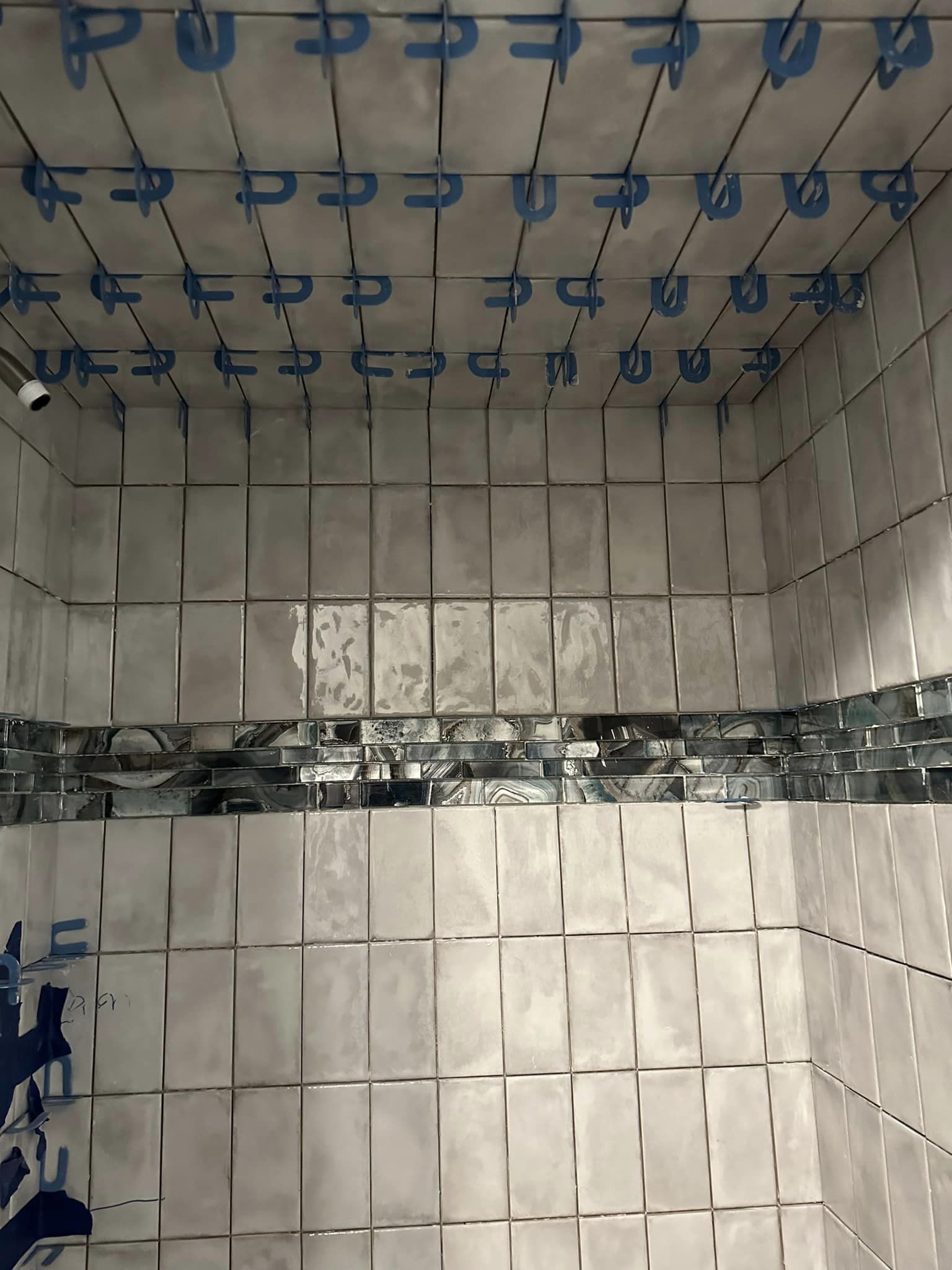When it comes to selecting tiles for your DIY project, the type you choose will depend on factors like the room, style, budget, and how durable you need the material to be. Here’s a breakdown of common tile types to help you make the best choice:
1. Ceramic Tiles
- Best For: Kitchens, bathrooms, living areas
- Pros:
- Affordable and widely available
- Easy to cut and install
- Comes in a variety of colors, finishes, and patterns
- Durable and water-resistant when glazed
- Cons:
- Can chip or crack under heavy impact
- Not ideal for outdoor use (can absorb water and crack in freezing conditions)
2. Porcelain Tiles
- Best For: Bathrooms, kitchens, high-traffic areas, outdoor spaces
- Pros:
- Denser and more durable than ceramic
- Extremely water-resistant (less porous than ceramic)
- Great for both indoor and outdoor use
- Available in many styles, including wood and stone look-alikes
- Cons:
- Harder to cut due to its density
- Can be more expensive than ceramic
3. Glass Tiles
- Best For: Backsplashes, shower walls, accent walls
- Pros:
- Reflective surface adds a sense of depth and light
- Easy to clean and maintain
- Stain-resistant
- Cons:
- More expensive
- Can crack or chip if subjected to heavy impact
- Slippery if used for flooring
4. Natural Stone Tiles
- Types: Marble, granite, slate, travertine, limestone
- Best For: Bathrooms, kitchens, high-end design spaces
- Pros:
- Natural, unique patterns and textures
- Durable and long-lasting
- Adds value and luxury to your home
- Cons:
- Expensive compared to other tile types
- Requires sealing to protect from stains and moisture
- Can be slippery if not properly finished or treated
- Heavy, making installation more complex
5. Cement Tiles
- Best For: Statement floors, accent walls, outdoor spaces
- Pros:
- Unique, handmade patterns and designs
- Highly durable and perfect for high-traffic areas
- Can be customized with endless patterns and colors
- Cons:
- Requires sealing to protect against moisture and stains
- Heavy and harder to install
- Colors may fade if not properly maintained
6. Mosaic Tiles
- Best For: Backsplashes, accent walls, and small areas
- Pros:
- Comes in sheets with small tiles for easy installation
- Great for creative patterns and designs
- Versatile (made from glass, stone, or ceramic)
- Cons:
- Can be expensive, especially high-end materials
- Grout lines need regular cleaning and maintenance
7. Vinyl Tiles
- Best For: Laundry rooms, bathrooms, and budget-friendly spaces
- Pros:
- Budget-friendly and easy to install (often peel-and-stick)
- Water-resistant and durable
- Soft underfoot and easy to replace
- Cons:
- Can look less premium than ceramic, porcelain, or stone
- Prone to dents or scratches
8. Terracotta Tiles
- Best For: Rustic or Mediterranean-style kitchens and outdoor spaces
- Pros:
- Natural, warm appearance
- Durable in warm climates
- Cons:
- Prone to staining and water absorption (requires sealing)
- More fragile than ceramic or porcelain
9. Quarry Tiles
- Best For: Outdoor patios, kitchens, basements
- Pros:
- Extremely durable and slip-resistant
- Made from natural clay
- Suitable for high-traffic and outdoor areas
- Cons:
- Limited color options (usually earth tones)
- Needs sealing if installed in wet areas
10. Metal Tiles
- Best For: Backsplashes, accent walls, modern kitchens
- Pros:
- Adds a sleek, contemporary look
- Durable and easy to clean
- Cons:
- Can scratch easily
- Limited to specific styles
Considerations When Choosing Tiles:
-
Location: For outdoor spaces, you’ll need a tile that’s frost-resistant and durable like porcelain or quarry tiles. For bathrooms or kitchens, water resistance is key, so glazed ceramic or porcelain is ideal.
-
Durability: High-traffic areas like hallways and kitchens need strong, durable tiles (porcelain or natural stone). For lower-traffic areas, you can opt for more decorative options like glass or ceramic.
-
Aesthetics: Consider the style and vibe of your space. Sleek porcelain or glass tiles work well in modern homes, while terracotta or natural stone may be better suited for rustic or traditional designs.
-
Ease of Installation: If you’re a beginner, ceramic tiles may be easier to cut and install than porcelain or natural stone. Vinyl and peel-and-stick options are also very DIY-friendly.
